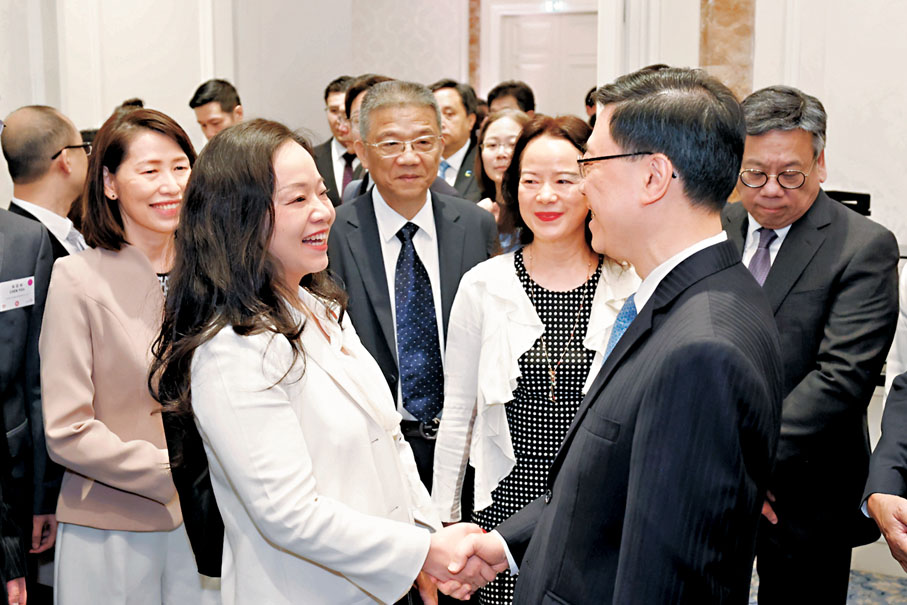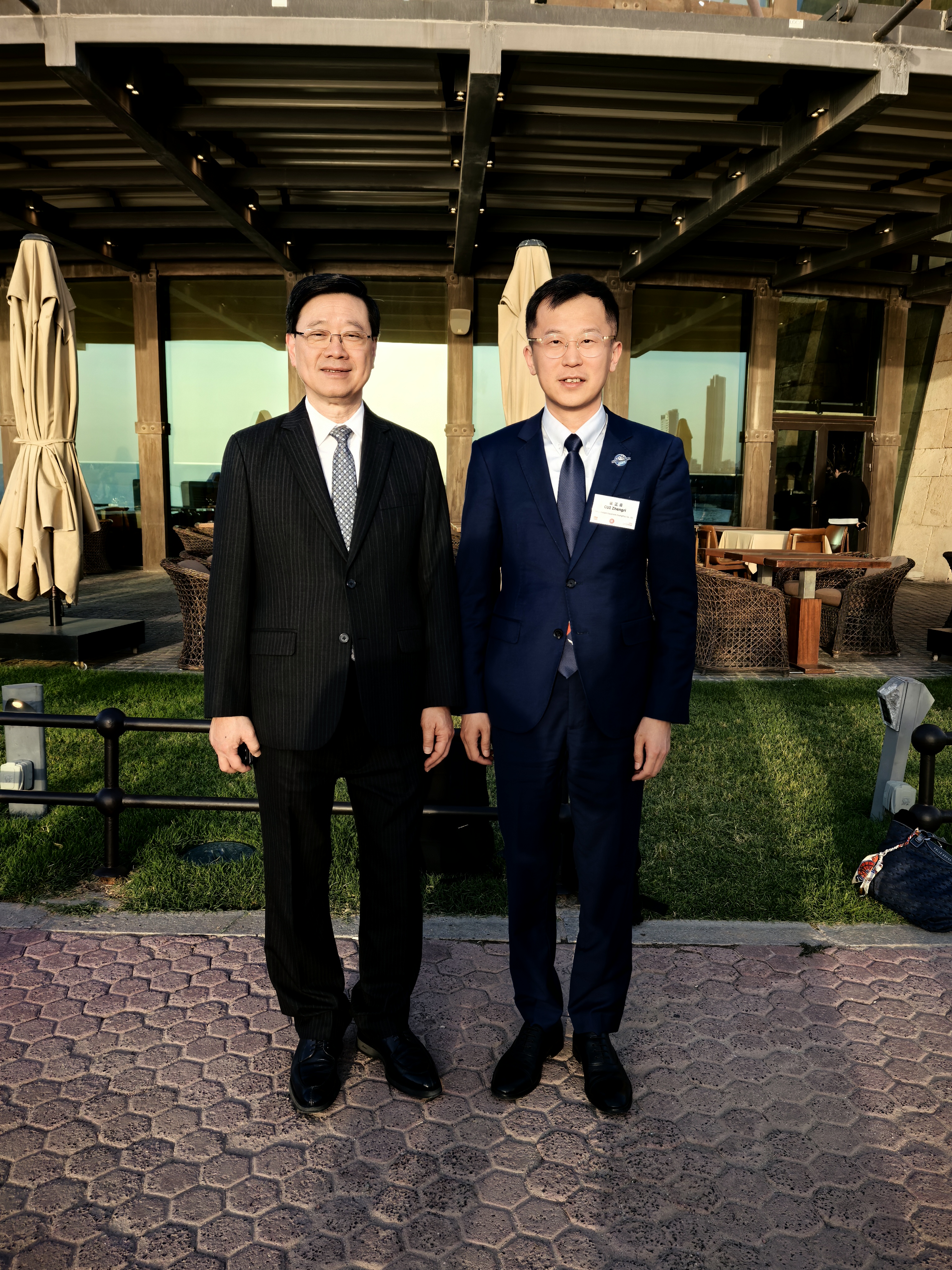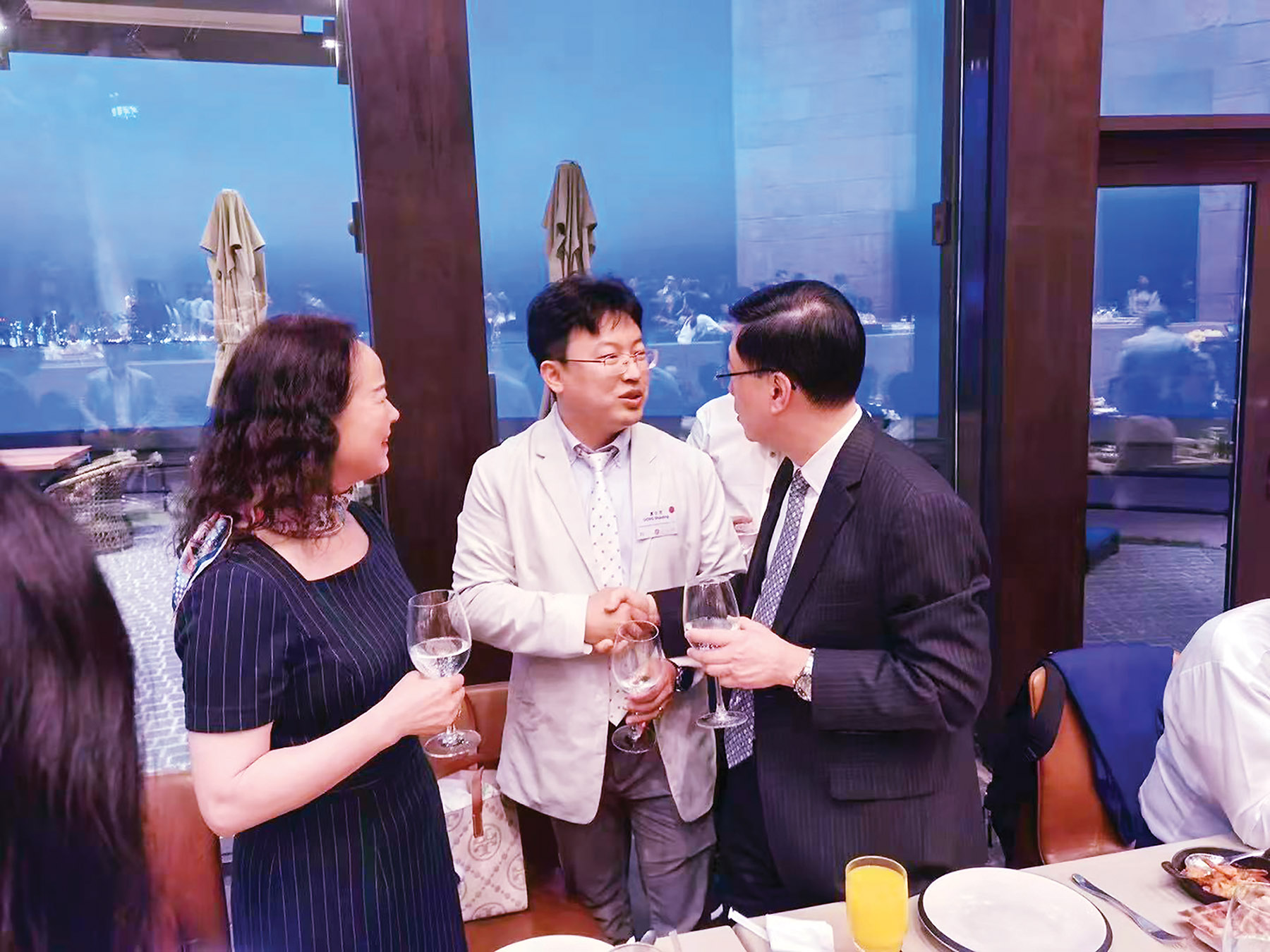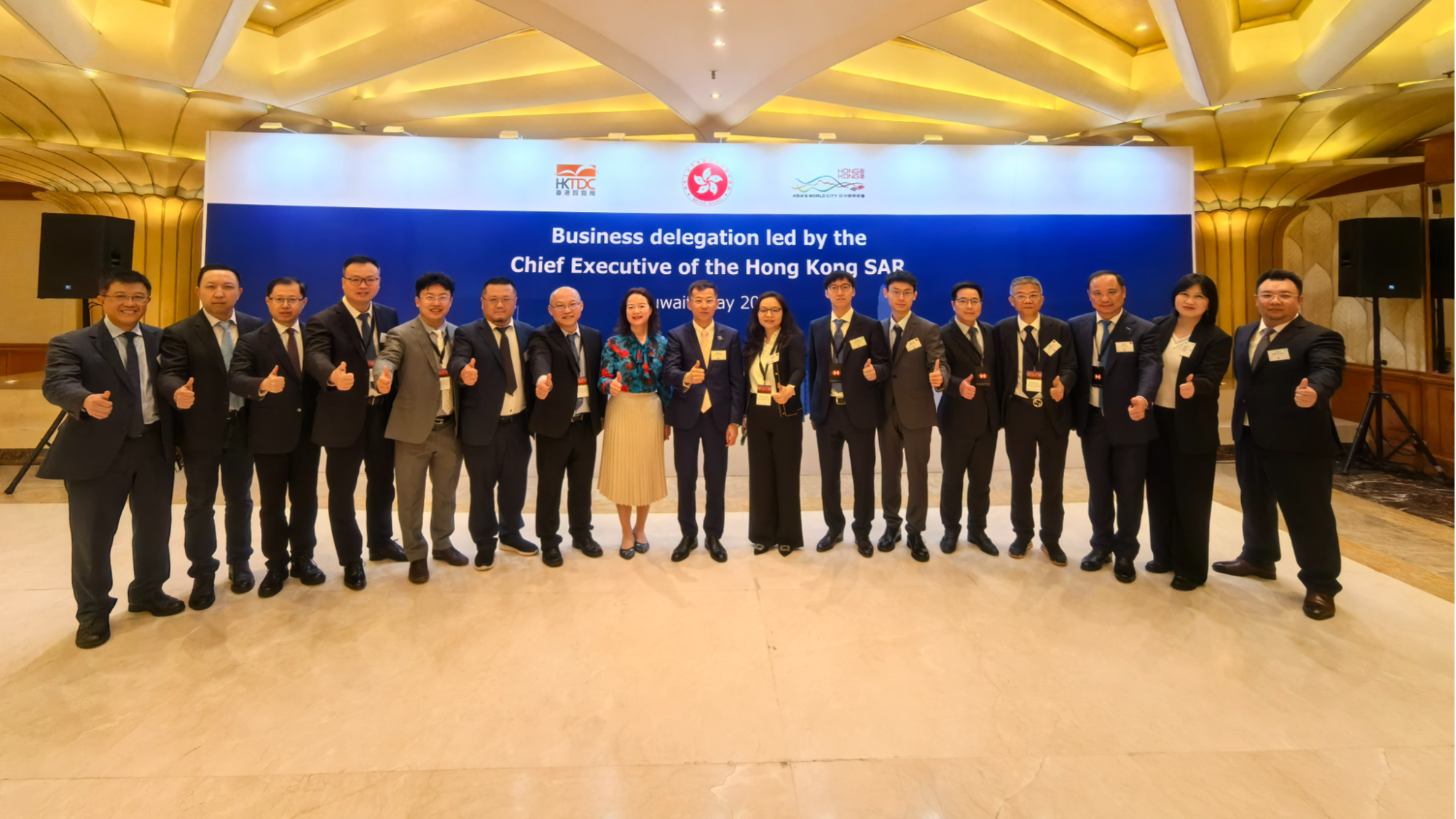Mainland and HK firms tour Middle East, showcase smart city innovations

Chinese mainland entrepreneurs who visited the Middle East with Hong Kong officials and business leaders for the first time said the landmark tour has offered a valuable opportunity for them to fuel the vibrant market’s economic transformation with innovative Chinese tech solutions.
Representing the emerging technology forces of the Guangdong-Hong Kong-Macao Greater Bay Area, these companies also aspire to further leverage Hong Kong’s superconnector role to expand their international presence.
Hong Kong Chief Executive John Lee Ka-chiu wrapped up the second visit to the Middle East of his tenure on Thursday, leading a delegation to Qatar and Kuwait, both fast-growing economies with dynamic business environments.
For the first time, over 20 mainland business leaders participated in the trip alongside Hong Kong delegates. They include representatives from four companies based in Guangdong province, specializing in low-altitude transportation, intelligent transportation, the digital markets, and financial technology.
For EHang, a global leader in urban air mobility technology based in Guangzhou, the major goal of this visit was to promote the application of its leading technologies and rich experience in the Middle East market, an important part of its international expansion strategy, according to Bill Choi, vice-president of the company.
READ MORE: Kuwait seeks to deepen ties with Hong Kong, minister says
With ambitious blueprints such as Saudi Arabia’s Vision 2030 and the United Arab Emirates’ Smart Dubai, the Middle East region is making big strides toward a tech-savvy future, characterized by smart cities, the digitalization of transportation, and intelligent energy utilization.
EHang especially seeks to propel the certification and operation of its flagship product — the pilotless and electricity-driven EH216-S electric vertical takeoff and landing aircraft — in the Middle East region, to offer eco-friendly air travel services and improve the efficiency of local industries.

The company also aims to broaden the horizons of low-altitude transportation through involvement in local smart city projects, so as to drive the region’s economic development with innovative solutions.
The company also plans to further tap into the European and American markets as well as the Middle East, and is promoting its green aviation services on a global scale.
PCI Technology Group, an intelligent transportation service provider based in Guangzhou, is another enterprise that participated in the trip.
Executive CEO Chen Jiao, said she and her colleagues reached a collaborative consensus with various parties during the trip, highlighting the strong alignment between the company’s technological strengths and the digital transformation demands of Middle Eastern nations.
With the trip now concluded, she aims to achieve the local application of the company’s core technologies in smart cities and in green transportation, and hopes to engage in new infrastructure projects like electric underground railways.
The Middle East region’s strict requirements for technological compatibility necessitate that outside companies develop customized plans with local partners. Chen may explore flexible collaboration methods like forming joint ventures or licensing technology.

Chen said she believes that since the region accelerated its economic diversification, it has become a core strategic market for Chinese enterprises to export smart technologies, test international adaptability, and expand overseas business.
With a sufficient budget and efficient decision-making, smart city projects in multiple Middle East markets, such as Dubai’s driverless taxis, have entered large-scale implementation phases.
Chen suggested that Chinese businesses targeting the market prioritize resolving their technological “pain points”, such as ensuring equipment stability in extreme heat and incorporating multilingual interactive systems.
As the overseas expansion strategy of Chinese mainland firms is shifting from relying solely on Hong Kong’s connections to deeply collaborating with the city, the joint visit initiated by the special administrative region government has provided a crucial endorsement for the enterprises’ ventures abroad, Chen said.
She said that, in the future, she envisions fostering collaboration with the SAR in technology, investment, and brand development, as well as teaming up with more top Chinese construction enterprises to collectively explore the vast opportunities overseas.

Another delegation member, Dong Shaoling, founder of Rabbitpre, a leading large vision model company based in Shenzhen, said that the thriving digitalization trend in the Middle East has generated strong interest in the company’s products from local government departments, major banks and media corporations.
Its flagship products include a self-developed artificial intelligence model for generating images and videos, along with an AI card system that facilitates money transfers, flight bookings, and food ordering, which has transformed the traditional interaction model of mobile applications.
Dong said that such initial and brief interactions rarely lead to immediate substantial collaboration. Nonetheless, this visit has served as a valuable opportunity to build relationships, gain market insights, and explore business opportunities.
He said he views the Middle East, with its significant market scale and strong demand for new technologies, as a vital stop for Chinese enterprises to go global. The young entrepreneur also aspires to capitalize on the region’s intelligence trend to offer an alternative to Western tech solutions.
Impressed by the efficient and pragmatic arrangements of the trip, Dong said it has boosted Hong Kong’s role as a superconnector. He added that the trip has also enabled him to expand connections with prominent Hong Kong organizations, such as Hong Kong Exchanges and Clearing Ltd, which will facilitate the company’s IPO plan.
Additionally, communication with other mainland enterprises during the trip has laid the foundations for a wider range of collaboration in the domestic market, which is experiencing a technological explosion, he said.
READ MORE: HK-Kuwait ties reach new heights with inking of 24 agreements
Hong Kong legislator William Wong Kam-fai, who is also a member of the National Committee of the Chinese People’s Political Consultative Conference, said the joint visit was in line with the central government’s expectation for Hong Kong to enhance international collaboration through its superconnector role.
Through the complementary advantages of Hong Kong and mainland enterprises, such joint visits can create additional business opportunities, enhance mutual trust among participants, and facilitate a broader scope of collaboration, Wong said.
He encouraged Hong Kong to help mainland enterprises adapt to overseas cultures to facilitate business, and expressed his hope for Hong Kong enterprises to participate in overseas business tours organized by mainland Greater Bay Area cities as well.
Contact the writers at bingcun@chinadailyhk.com


